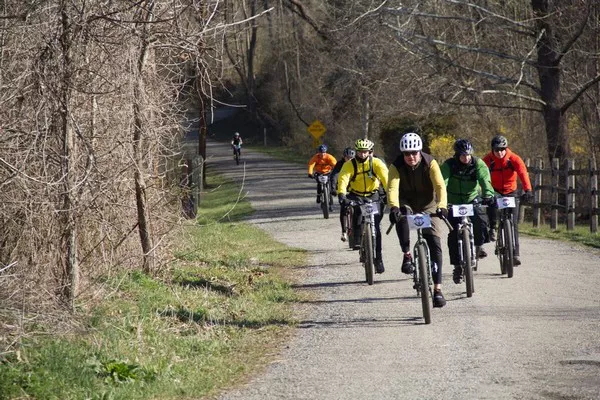In the realm of sustainable and healthy lifestyle choices, cycling stands out as a versatile and impactful activity. Beyond being a mode of transportation, biking offers a plethora of benefits that extend far beyond personal health. From reducing environmental impact to fostering vibrant communities, the advantages of biking are as diverse as they are profound. In this article, we delve into the multifaceted ways in which biking contributes positively to individuals, societies, and the environment.
Enhancing Physical Health
One of the most immediate and evident benefits of biking is its positive impact on physical health. Cycling is a low-impact aerobic exercise that engages major muscle groups, including the legs, buttocks, and core. Regular biking helps improve cardiovascular fitness, strengthen muscles, and enhance flexibility. Unlike high-impact activities such as running, biking is gentle on the joints, making it suitable for individuals of various fitness levels and ages.
Research has consistently shown that incorporating cycling into one’s routine can have profound health benefits. For instance, cycling regularly can reduce the risk of chronic diseases such as heart disease, stroke, and type 2 diabetes. It also helps in managing weight and improving overall endurance. Moreover, cycling has been linked to better mental health outcomes, including reduced stress levels and improved mood due to the release of endorphins during physical activity.
Environmental Impact
In an era where sustainability is paramount, biking emerges as a sustainable mode of transportation that significantly reduces carbon emissions and environmental impact. Unlike motor vehicles that rely on fossil fuels, bicycles produce zero emissions and require minimal resources to manufacture and maintain. By choosing biking over driving, individuals can contribute directly to mitigating air pollution and reducing their carbon footprint.
The adoption of cycling infrastructure and policies that promote biking as a viable transportation option can lead to substantial environmental benefits. Increased bike lanes, bike-sharing programs, and bike-friendly cities not only encourage more people to cycle but also contribute to reducing traffic congestion and improving air quality. As a result, communities that prioritize cycling experience enhanced livability and sustainability.
Economic Advantages
Beyond individual health and environmental benefits, biking also offers economic advantages at both personal and societal levels. For individuals, cycling can lead to significant cost savings compared to car ownership. With minimal maintenance costs and no fuel expenses, biking is a cost-effective alternative for daily commuting and short-distance travel.
At a broader level, investing in biking infrastructure can yield substantial economic returns for communities. Studies have shown that cities with well-developed cycling infrastructure attract more tourists, foster local businesses, and reduce healthcare costs associated with sedentary lifestyles. Moreover, fewer cars on the road can lead to reduced spending on road maintenance and infrastructure, ultimately benefiting taxpayers.
Social and Community Impact
Biking transcends individual benefits to create positive social impacts and build stronger communities. Cycling promotes social interaction and connectivity among individuals from diverse backgrounds. Communal biking events, group rides, and cycling clubs provide opportunities for social engagement and networking.
Furthermore, communities that prioritize biking often experience increased safety and a higher quality of life. With more cyclists on the road, drivers become more attuned to sharing the road responsibly, leading to fewer accidents and injuries. Additionally, bike-friendly neighborhoods tend to be more pedestrian-friendly, fostering a sense of community and encouraging outdoor activities.
Promoting Urban Development and Planning
The integration of biking into urban development and planning is key to creating sustainable and livable cities. Well-designed biking infrastructure not only encourages active transportation but also enhances urban mobility and accessibility. Cities that prioritize biking infrastructure experience reduced traffic congestion, improved public health outcomes, and increased economic vitality.
Strategic urban planning that incorporates biking lanes, bike racks, and bike-sharing systems can transform urban landscapes and promote equitable access to transportation. By investing in biking-friendly infrastructure, cities can enhance the overall quality of life for residents while reducing dependency on motor vehicles.
Advocacy and Policy Initiatives
Realizing the full potential of biking requires concerted advocacy efforts and supportive policy initiatives. Governments, organizations, and communities play pivotal roles in promoting biking as a sustainable mode of transportation. This includes investing in cycling infrastructure, implementing bike-friendly policies, and raising awareness about the benefits of biking.
Advocacy campaigns aimed at promoting biking can influence public perception and encourage behavioral change. By prioritizing biking in transportation planning and policy-making, decision-makers can create environments that facilitate and encourage cycling as a safe and accessible mode of transportation for all.
Conclusion
In conclusion, biking represents more than just a mode of transportation; it embodies a lifestyle that promotes holistic well-being, sustainability, and community engagement. From improving physical health and reducing environmental impact to fostering vibrant communities and promoting urban development, the transformative benefits of biking are undeniable.
As individuals, communities, and policymakers increasingly recognize the value of biking, it is essential to continue investing in biking infrastructure, promoting cycling-friendly policies, and advocating for a shift towards sustainable transportation alternatives. By embracing biking, we can create healthier, more sustainable, and more connected societies for generations to come.

